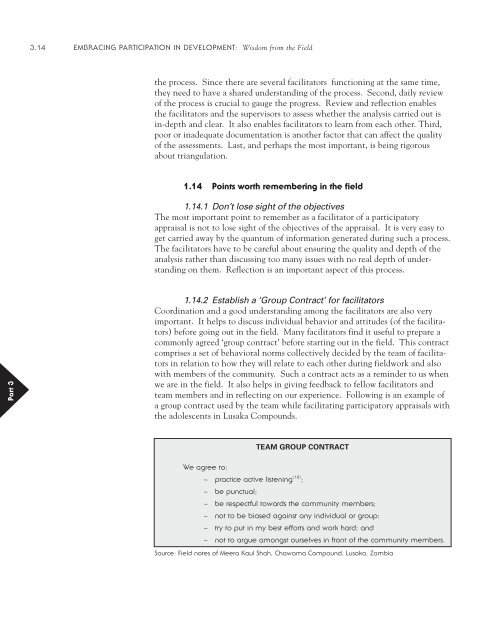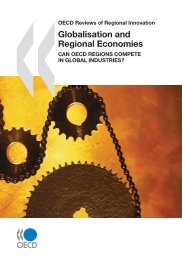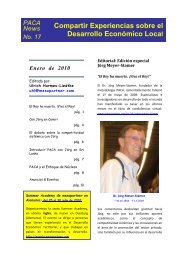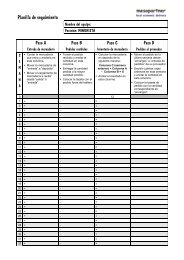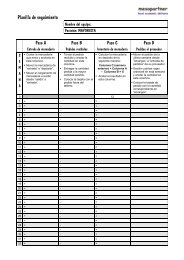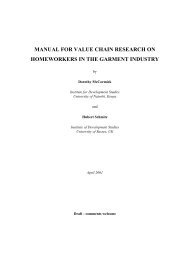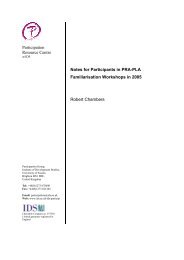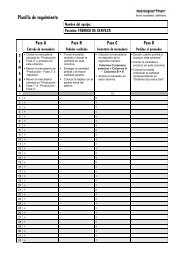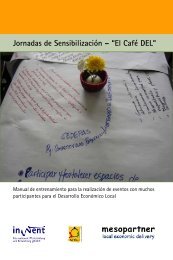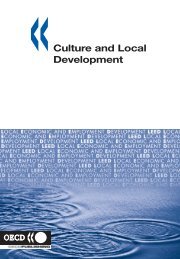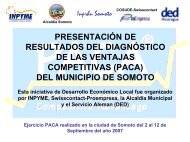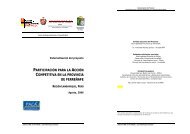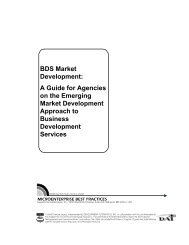PRA-Manual Embracing Participitation tools-only.pdf - PACA
PRA-Manual Embracing Participitation tools-only.pdf - PACA
PRA-Manual Embracing Participitation tools-only.pdf - PACA
You also want an ePaper? Increase the reach of your titles
YUMPU automatically turns print PDFs into web optimized ePapers that Google loves.
3.14 EMBRACING PARTICIPATION IN DEVELOPMENT: Wisdom from the Field<br />
the process. Since there are several facilitators functioning at the same time,<br />
they need to have a shared understanding of the process. Second, daily review<br />
of the process is crucial to gauge the progress. Review and reflection enables<br />
the facilitators and the supervisors to assess whether the analysis carried out is<br />
in-depth and clear. It also enables facilitators to learn from each other. Third,<br />
poor or inadequate documentation is another factor that can affect the quality<br />
of the assessments. Last, and perhaps the most important, is being rigorous<br />
about triangulation.<br />
1.14 Points worth remembering in the field<br />
1.14.1 Don’t lose sight of the objectives<br />
The most important point to remember as a facilitator of a participatory<br />
appraisal is not to lose sight of the objectives of the appraisal. It is very easy to<br />
get carried away by the quantum of information generated during such a process.<br />
The facilitators have to be careful about ensuring the quality and depth of the<br />
analysis rather than discussing too many issues with no real depth of understanding<br />
on them. Reflection is an important aspect of this process.<br />
Part 3<br />
1.14.2 Establish a ‘Group Contract’ for facilitators<br />
Coordination and a good understanding among the facilitators are also very<br />
important. It helps to discuss individual behavior and attitudes (of the facilitators)<br />
before going out in the field. Many facilitators find it useful to prepare a<br />
comm<strong>only</strong> agreed ‘group contract’ before starting out in the field. This contract<br />
comprises a set of behavioral norms collectively decided by the team of facilitators<br />
in relation to how they will relate to each other during fieldwork and also<br />
with members of the community. Such a contract acts as a reminder to us when<br />
we are in the field. It also helps in giving feedback to fellow facilitators and<br />
team members and in reflecting on our experience. Following is an example of<br />
a group contract used by the team while facilitating participatory appraisals with<br />
the adolescents in Lusaka Compounds.<br />
TEAM GROUP CONTRACT<br />
We agree to:<br />
~ practice active listening (18) ;<br />
~ be punctual;<br />
~ be respectful towards the community members;<br />
~ not to be biased against any individual or group;<br />
~ try to put in my best efforts and work hard; and<br />
~ not to argue amongst ourselves in front of the community members.<br />
Source: Field notes of Meera Kaul Shah, Chawama Compound, Lusaka, Zambia


